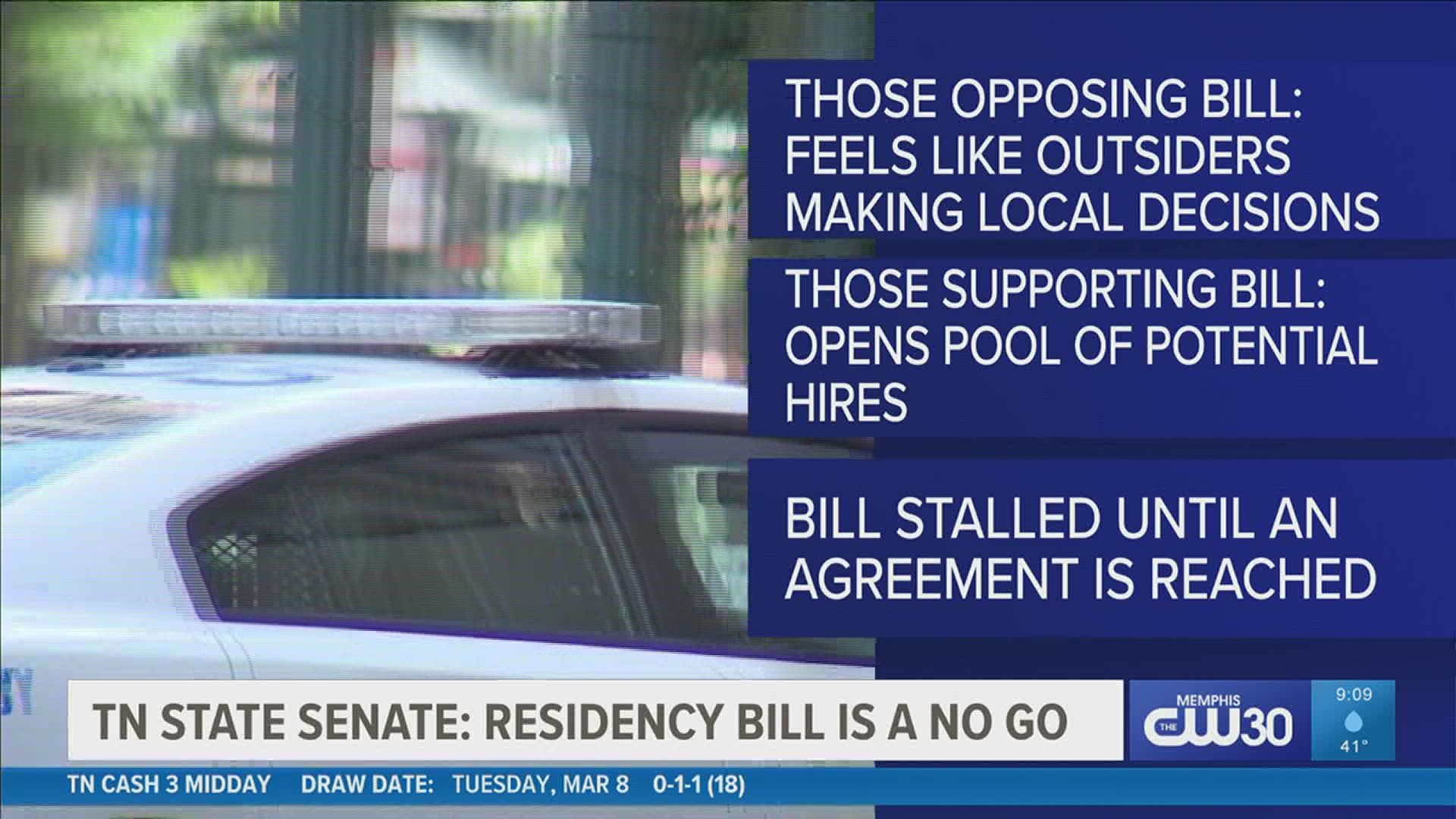MEMPHIS, Tenn. — The State Senate rejected the House’s version of the Tennessee residency bill (HB0105) on Monday, March 7, which if passed, would have allowed first responders who work in Memphis to live outside of city and Shelby County limits, eliminating current residency requirements.
The Senate originally passed its version of the residency bill last year, writing the bill to eliminate residency requirements for first responders statewide.
The State House’s version of the bill, which was passed in February, was changed to exclusively apply to Memphis, reinstating residency requirements for first responders in other cities in Tennessee.
The modifications of the bill to only apply to Memphis caused controversy, striking conflict for local activists and Memphis City Council Members.
Many representatives, like Representative Larry J. Miller, who were in disagreement with the bill felt that outsiders were moving in to make decisions on local issues, as Memphis continues to struggle with increasing crime rates.
State Representative Jesse Chism denounced the bill, arguing that the changes to the bill to only apply to Memphis would be a state takeover, ultimately interrupting community policing efforts by employing non-resident police officers and other first responders who lack familiarity with the people of Memphis.
Memphis Police Chief Cerelyn “C.J.” Davis, Mayor Jim Strickland, State Senator Brian Kelsey and others supported the bill.
Memphis Police Department is currently facing a police shortage. The department’s traditional hiring process requires potential employees to endure a six-month waiting period for training class openings.
The bill is part of a hiring effort that lessens lengthy onboarding training requirements, allowing the police department to potentially recruit more than 300 new officers.
Now that the State Senate has rejected the bill, it will go back to the State House of Representatives, who can either accept or reject the Senate’s new version of the bill.
The bill cannot be passed and signed by Gov. Bill Lee until the State House and State Senate come to an agreement on the terms and specifics of the bill.
Until then, the bill will continue to be held up.

